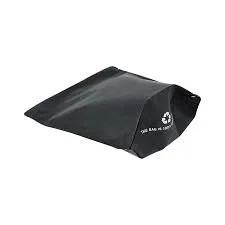- Afrikaans
- Albanian
- Amharic
- Arabic
- Armenian
- Azerbaijani
- Basque
- Belarusian
- Bengali
- Bosnian
- Bulgarian
- Catalan
- Cebuano
- chinese_simplified
- chinese_traditional
- Corsican
- Croatian
- Czech
- Danish
- Dutch
- English
- Esperanto
- Estonian
- Finnish
- French
- Frisian
- Galician
- Georgian
- German
- Greek
- Gujarati
- haitian_creole
- hausa
- hawaiian
- Hebrew
- Hindi
- Miao
- Hungarian
- Icelandic
- igbo
- Indonesian
- irish
- Italian
- Japanese
- Javanese
- Kannada
- kazakh
- Khmer
- Rwandese
- Korean
- Kurdish
- Kyrgyz
- Lao
- Latin
- Latvian
- Lithuanian
- Luxembourgish
- Macedonian
- Malgashi
- Malay
- Malayalam
- Maltese
- Maori
- Marathi
- Mongolian
- Myanmar
- Nepali
- Norwegian
- Norwegian
- Occitan
- Pashto
- Persian
- Polish
- Portuguese
- Punjabi
- Romanian
- Russian
- Samoan
- scottish-gaelic
- Serbian
- Sesotho
- Shona
- Sindhi
- Sinhala
- Slovak
- Slovenian
- Somali
- Spanish
- Sundanese
- Swahili
- Swedish
- Tagalog
- Tajik
- Tamil
- Tatar
- Telugu
- Thai
- Turkish
- Turkmen
- Ukrainian
- Urdu
- Uighur
- Uzbek
- Vietnamese
- Welsh
- Bantu
- Yiddish
- Yoruba
- Zulu
Home Water Storage Solutions for Efficient and Convenient Use
Water Storage Containers for Home Use
In today's world, access to clean and safe water is more critical than ever. Whether you live in an area prone to natural disasters, have inconsistent municipal water delivery, or simply want to ensure you have enough fresh water on hand for emergencies, water storage containers are an essential addition to any home. This article will explore the types of water storage containers available, their uses, and considerations to keep in mind when choosing the right one for your needs.
Types of Water Storage Containers
1. Plastic Water Tanks Available in various sizes, plastic tanks are commonly used for both indoor and outdoor storage. They are lightweight, affordable, and resistant to rust and corrosion. Food-grade plastic tanks are designed to store potable water, making them an excellent option for drinking and cooking.
2. Metal Water Tanks These tanks are typically made from stainless steel or aluminum. While more durable and long-lasting than plastic containers, they can be heavier and more expensive. Metal tanks are resistant to ultraviolet (UV) light, which can degrade plastic containers over time.
3. Collapsible Water Containers Perfect for those with limited storage space, collapsible containers can be easily folded when not in use. They are generally made of durable plastic or fabric and are ideal for carrying water during camping trips or for short-term storage.
4. Water Barrels Often used for rainwater harvesting, barrels can store large volumes of water. They typically have a lid to prevent contamination and can be fitted with a spigot for easy access. Rain barrels are a sustainable option for collecting and utilizing natural resources.
5. Emergency Water Bags These are specially designed for short-term use during emergencies. They often feature built-in filtering systems and usually hold a smaller volume of water, making them easy to store and transport.
Uses of Water Storage Containers
Water storage containers can serve multiple purposes in the home. Besides providing a backup source of drinking water, they are essential for gardening, washing, and cooking. In situations like natural disasters, where water supply might be disrupted, having a reserve ensures that you and your family can sustain yourselves until the situation is resolved.
water storage containers for home use

Additionally, many homeowners use water storage containers to harvest rainwater. This not only conserves water but also reduces the utility bill. Rainwater can be used for irrigation, washing cars, and other non-potable applications.
Considerations When Choosing Water Storage Containers
When selecting a water storage container, several factors come into play
1. Material Choose containers made from food-safe, UV-resistant materials that won't leach harmful chemicals into the water. Look for BPA-free products to ensure that your water stays safe for consumption.
2. Size Assess how much water you need to store and the available space. Consider using a combination of small and large containers to optimize storage.
3. Accessibility Make sure the container is easy to fill, transport, and dispense. Features like spigots or pour handles can make accessing water much more convenient.
4. Maintenance Regular cleaning and proper maintenance are essential to ensure the longevity and hygiene of your storage containers. Choose designs that allow for easy cleaning and inspection.
5. Local Regulations If you intend to harvest rainwater, be aware of any local regulations or guidelines that may impact your ability to do so.
Conclusion
In conclusion, water storage containers are crucial for ensuring that you have access to safe and clean water in various situations. Whether for everyday use, emergency preparedness, or sustainability efforts like rainwater harvesting, investing in quality containers can provide peace of mind. With careful consideration of the different types available and their respective uses, you’ll be well-equipped to choose the right water storage solutions for your home. Remember, ensuring access to water today can prepare you for whatever challenges tomorrow may bring.













